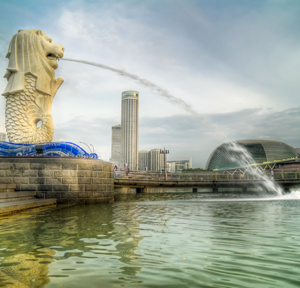The liberalisation of Singapore's banking sector over time
Chris Hamblin, Editor, London, 10 July 2019

With the news that the Monetary Authority of Singapore is about to issue up to five new digital bank licences, with two of them in the retail sector, we look at the gradual liberalisation of the banking sector under that regulator's remit.
The MAS (founded in 1971) embarked on a five-year programme in 1999-2003 to liberalise Singapore’s banking sector. In 1999 it created the category of Qualifying Full Banks (QFBs) to distinguish these banks from the existing Full Banks - this is undoubtedly why the digital 'full bank' license is so called. One of the key privileges accorded to QFBs - of which there are nine at the moment - was the greater number of places of business that a QFB can have, compared with the other foreign banks. ABN Amro Bank, BNP, Citibank and Standard Chartered Bank were the first four and were allowed to establish up to 10 locations each, relocate their existing branches and share ATMs among themselves.
The MAS also granted eight new Restricted Bank licences to banks that wanted to expand their wholesale Singapore dollar business. It gave Offshore Banks (in 2016 it phased out the Offshore Bank licence, aiming to convert such banks into Wholesale Banks - another category - over time) more flexibility to lend in those dollars and engage in Singapore dollar swaps, and even wider leeway to eight Qualifying Offshore Banks - another category of bank.
The second package of measures in 2001 entailed the grant of 20 Restricted Bank licences over two years to free up competition in the wholesale banking business. Restricted Bank licences were renamed Wholesale Bank licences because they were now able to perform a wider range of activities. The regulator granted QFBs more privileges, such as an extra five places of business (bringing the total up to 15) and access to EFTPOS (electronic funds transfer at point of sale) networks.
Later projects
In 2005, the MAS bumped the number of places of business for QFBs up to 25. In 2012, it required the local incorporation of the retail operations of QFBs which are important to the domestic market, with the aim of protecting deposits. The MAS also introduced the Significantly Rooted Foreign Bank (SRFB) category, which allowed certain QFBs to have 50 places of business, although the privileges that these licences bestow are only granted under free-trade agreements.
The nine QFBs are the Bank of China Ltd, BNP Paribas, Citibank Singapore, HSBC Bank (Singapore) Ltd, ICICI Bank, Industrial and Commercial Bank of China Ltd, Maybank Singapore Ltd, Standard Chartered Bank (Singapore) Ltd, and State Bank of India.
Last year, the MAS announced that it would open its real-time and round-the-clock payment system, Fast and Secure Transfers (FAST), to non-bank financial institutions for the greater convenience of consumers, allowing more of them to transfer money from bank accounts to e-wallets not held by banks and vice versa.
The latest digital initiative
The Monetary Authority of Singapore now plans to issue some new digital bank licences in addition to any digital banks that Singapore's banking groups may also establish in accordance with existing internet banking rules that date back to 2000. The aim is to make digital bank licences available to businesses outside the banking fraternity.
MAS chairman Mr Tharman Shanmugaratnam announced the plan at a recent gathering of bankers, envisaging that competition from the new licensees might spur existing banks on to offer better digital services.
There will be up to two digital 'full bank' licences, which will allow the licensees to provide a wide range of financial services and take deposits from retail customers, and up to three digital wholesale bank licences, which allow licensees to serve the non-retail community. Companies headquartered in Singapore and controlled by Singaporeans are invited to apply. Foreign companies are eligible for these full bank licences if they form joint ventures with Singapore companies, as long as those joint ventures meet various rules that apply to headquarters and control. Any company can apply for these.












